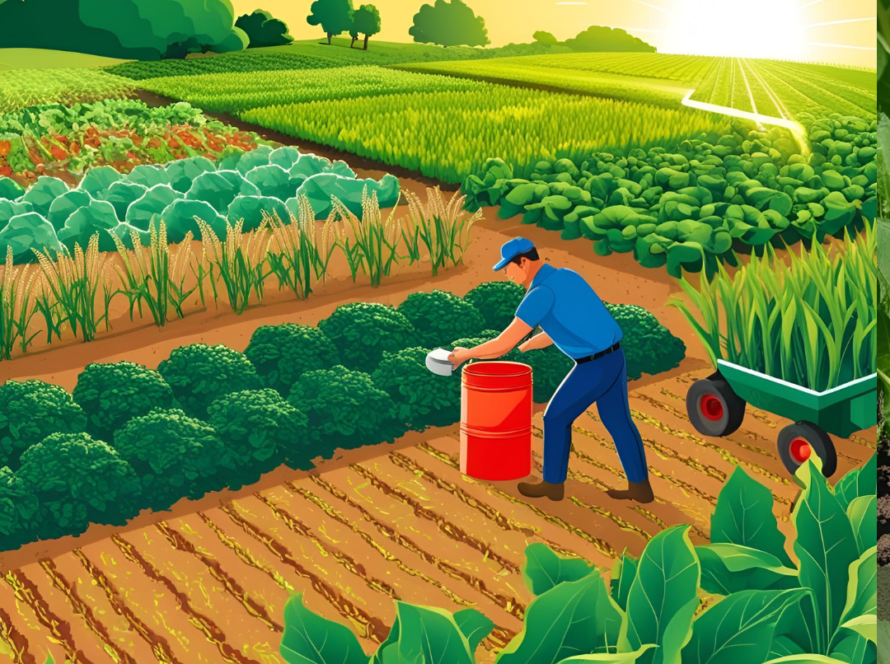Vegetable crops are high-value but highly susceptible to various fungal, bacterial, viral, and nematode diseases. Effective Integrated Crop Disease Management (ICDM) ensures vegetables stay healthy, high-yielding, and market-ready, helping farmers maximize profits while minimizing chemical use.
1. Common Vegetable Diseases
- Tomato Leaf Curl Virus – Leaves curl, yellow, and yield declines.
- Powdery Mildew – White fungal growth on leaves of cucurbits and other vegetables.
- Bacterial Wilt – Sudden wilting and collapse of plants in solanaceous crops.
- Downy Mildew – Yellow or pale green patches on leaves of leafy vegetables and cucurbits.
- Root-Knot Nematodes – Swellings on roots, leading to stunted growth and poor yields.
- Anthracnose – Dark lesions on fruits and stems, common in peppers, tomatoes, and cucurbits.
2. Causes of Vegetable Diseases
- High Humidity and Waterlogging – Favors fungal infections.
- Dense Planting – Reduces airflow, increasing disease spread.
- Infected Seeds or Seedlings – Early introduction of pathogens.
- Soil-Borne Pathogens – Continuous cropping without rotation increases risk.
- Insect Vectors – Aphids, whiteflies, and thrips transmit viral infections.
3. ICDM Practices for Vegetables
- Cultural Practices
- Use disease-free seedlings and seeds.
- Maintain adequate spacing to improve airflow and sunlight penetration.
- Remove infected plants and crop debris immediately.
- Practice crop rotation with non-host plants to break disease cycles.
- Biological Control
- Apply Trichoderma, Bacillus subtilis, and neem-based bio-pesticides.
- Encourage beneficial insects like ladybugs to control pests naturally.
- Resistant Varieties
- Grow disease-resistant varieties of tomatoes, cucumbers, peppers, and leafy vegetables.
- Water and Nutrient Management
- Use drip irrigation to reduce leaf wetness and fungal infections.
- Ensure balanced fertilization to strengthen plant immunity.
- Chemical Management
- Use fungicides, bactericides, and nematicides only when necessary, following recommended doses.
- Vector Management
- Control aphids, whiteflies, and other insects using eco-friendly traps and biopesticides.
4. Benefits of ICDM in Vegetables
- Healthy vegetables with better yield and quality.
- Reduced losses due to fungal, bacterial, viral, and nematode diseases.
- Lower input costs by minimizing unnecessary chemical use.
- Early detection prevents large-scale outbreaks and ensures market-ready produce.
- Sustainable and environmentally friendly crop production.
5. Krikso India Support for Vegetable Farmers
- Certified Disease-Free Seeds and Seedlings – Establish strong and healthy vegetable crops.
- Bio-Fertilizers and Bio-Pesticides – Manage fungal, bacterial, viral, and nematode threats effectively.
- Technical Advisory Services – Expert guidance on ICDM practices, monitoring, and preventive measures.
- Market Support – Ensures farmers sell high-quality, disease-free vegetables at profitable rates.



